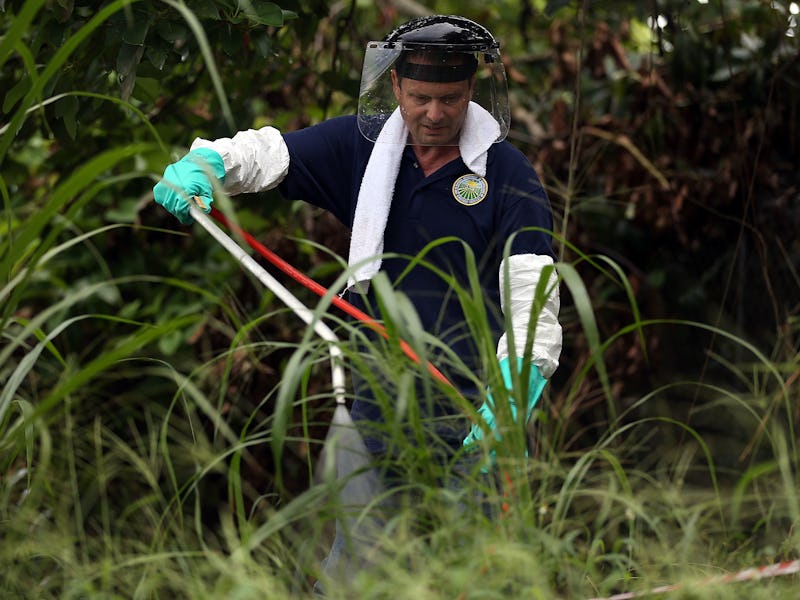Oriental Fruit Fly Outbreak Threatens Florida's Export Economy
Avocados, strawberries, and tomatoes could all be affected.

Miami-Dade County’s fruit industry is worth about $700 million. And all of that is at risk right now because of an outbreak in a tiny, foreign fly species. According to NPR, the Oriental fruit fly (bactrocera dorsalis) was first found a few weeks ago near Miami and posed an immediate threat. The state then quarantined 85 square miles of farmland to prevent the insect’s further spread.
The Oriental fruit fly is so dangerous because it affects over 400 different plants and fruits, according to Adam H. Putnam, the state’s Commissioner of Agriculture. The fly does its damage by feeding on and laying eggs in the various fruits, making them dangerous for consumption, according to Newsweek.
Tomatoes, avocados, and strawberries could all be affected. They say that 159 flies have been found, which will keep the quarantine intact until late January.
The fly is not native to Florida — as the name may indicate — so there are no natural predators to help eliminate the population. Still, officials are hopeful that they can deal with the invasion quickly. The infestation and subsequent quarantine pose a serious threat to the economy, and as we enter the winter months, the spotlight is on Florida’s fruit growers when much of the rest of the country gets too cold to source produce locally. The industry may be lucrative as a whole, but individual farmers will feel the effect of not being able to grow tropical fruits, such as dragon fruit, guava, passion fruit, and more.
The timing could not be worse for exports. If the quarantine ends in January, as planned, Florida farmers will, fortunately, have some wintertime to recover. We haven’t felt the effects of the outbreak yet, but it’s likely we will as the weather gets colder and the citrus runs a little dryer.